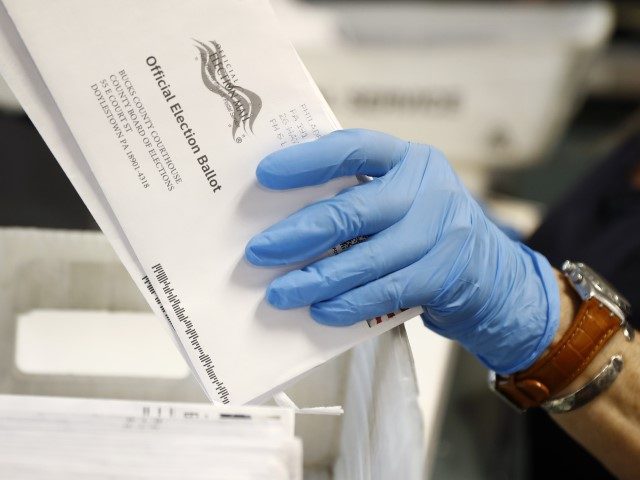Three conservative judges on a five-court panel struck down Pennsylvania’s 2019 expanded mail-in voting law that reportedly permitted 2.5 million people, the majority of them Democrats, to cast votes in 2020.
Basing their decisions on election laws passed in 1839 and 1923, the court ruled the legislature’s law unconstitutional. Pennsylvania’s constitution would have to be changed to allow mail-in voting, the court held.
“The Pennsylvania Constitution requires a qualified elector to present her ballot in person at a designated polling place on Election Day, except where she meets one of the constitutional exceptions for absentee voting,” the ruling reads.
In 2019, the Republican-controlled legislature voted to permit mail-in ballots for additional reasons, such as illness and physical disability, which the judges deemed unconstitutional under the state constitution.
Gov. Tom Wolf (D) immediately announced he would appeal the decision to the state’s supreme court. “The Administration will immediately appeal this decision to the state Supreme Court and today’s lower court ruling will have no immediate effect on mail-in voting pending a final decision on the appeal,” he said.
The ruling comes as Pennsylvania residents will elect a new governor and a U.S. senator in a hotly contested battle amid a 50-50 split senate. The ruling may impact the November election.
Donald Trump, who lost to President Biden in Pennsylvania by 1.2 percent, issued a statement in celebration of the news. “Big news out of Pennsylvania, great patriotic spirit is developing at a level that nobody thought possible. Make America Great Again!” he said.
Of the 6.9 million votes cast in 2020, 2.5 million of them were mail-in ballots, and most of those mail-in votes were cast by Democrats, according to NBC 10 Philadelphia.
Republican candidates and Trump supporters made this case in late 2020, unsuccessfully attempting to litigate the issue around Election Day. They alleged that Biden and other Democrat candidates benefited from ballots that were not legal, and that Democrats shouted down the idea that any of these Pennsylvania ballots were improperly cast, calling it part of “the Big Lie.”
Pennsylvania is not the only state to rule in favor of election integrity. In January, a judge ruled absentee ballot drop boxes used in the 2020 presidential election are unlawful in Wisconsin:
The judge’s ruling reportedly specified the so-called “bipartisan” commission should not have unilaterally issued the drop box guidance to local election officials without proceeding through the traditional rulemaking process.
…
According to WisPolitcs.com, the clerk’s office accepted 653,236 in-person ballots. Another 1.3 million were cast absentee. No record was reportedly kept on how many ballots were accepted through drop boxes.
Meanwhile, Georgia’s election officials announced a probe into possible illegal ballot harvesting in the 2020 election:
While former President Trump lost the state of Georgia by a 12,000 vote margin, True the Vote submitted a complaint to Raffensperger’s office on November 30 that details digital data of 242 people making visits to drop boxes to dump mail-in-ballots, with about 40 percent of the trips occurring between midnight and 5:00 a.m., Just the News reported.
The True the Vote evidence reportedly details phone data correlated with video that shows individuals dropping ballots at 5,662 ballot drops during the 2020 pandemic.
The case is McLinko v. Pennsylvania, No. 293 M.D. 2021 in the Commonwealth Court of Pennsylvania.

COMMENTS
Please let us know if you're having issues with commenting.